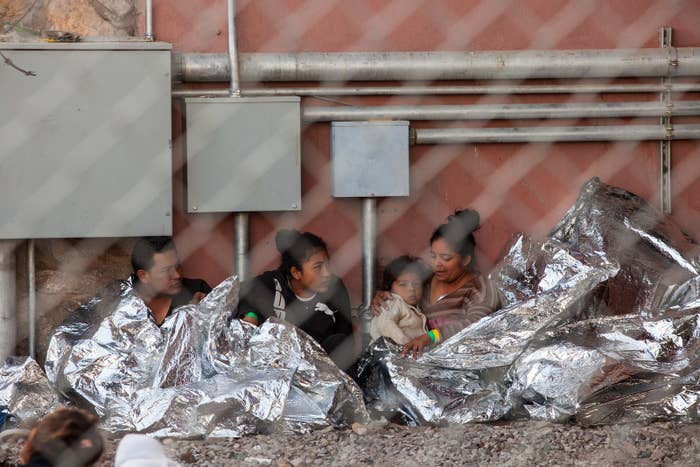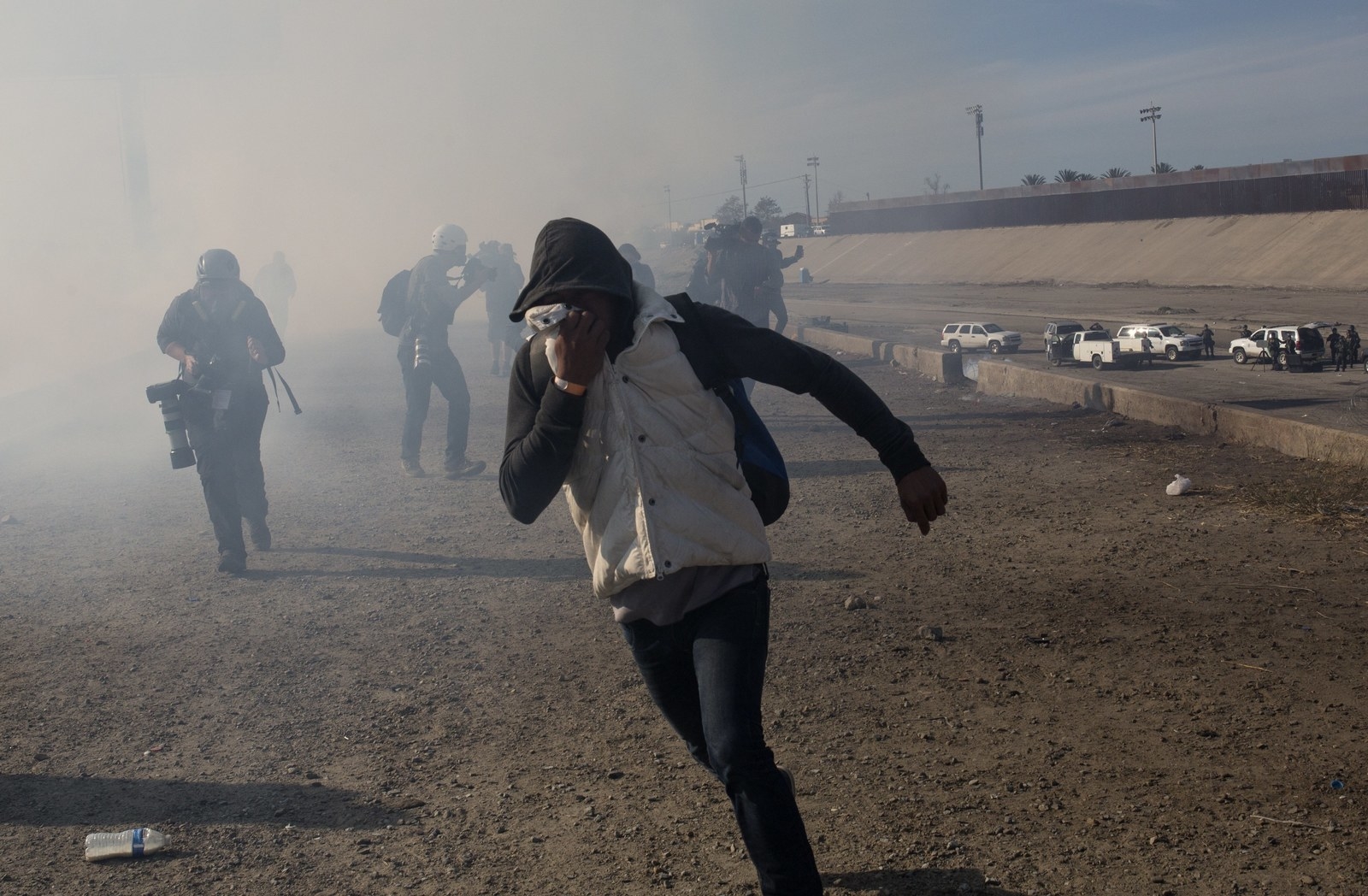
US officials grappling with an influx of immigrants said Friday they are considering closing ports of entry linking the US and Mexico following a tweet from President Trump threatening to shut down the entire southern border, or large sections of it, if Mexico doesn’t “immediately stop all illegal immigration.”
Secretary of Homeland Security Kirstjen Nielsen told reporters on a conference call that the agency has already pulled officers from official border crossings to help contend with the surge of immigrants, a move that could lead to closures.
“It’s on the table,” Nielsen said. “I will make a recommendation accordingly to the president.”
Nielsen said the US hopes that working with Mexico to stem the flow of Central American immigrants making the journey to the US and reallocating resources between the ports of entry will reduce the number of people they’re seeing at the border.
“What the president is making clear is with these numbers if we have to close ports to take care of all the numbers who are coming we will do that,” Nielsen said. “We are at a breaking point.”
At Trump’s Mar-a-Lago resort in Florida, the president reiterated his threat to close the border.
“If they don’t stop them, we’re closing the border,” Trump said Friday. “We’ll close it. And we’ll keep it closed for a long time. I’m not playing games. Mexico has to stop it.”
“There’s a very good likelihood” it will happen next week, he later added.

This month, agents are projected to apprehend more than 50,000 families across the southern border — the highest total on record since the US began tracking the statistic in 2012.
Earlier this week, US Customs and Border Protection Commissioner Kevin McAleenan said the situation had forced the reassignment of 750 officers from nearby ports to the border with Mexico. The agents, he said, are needed to handle the projected record number of immigrant families apprehended this month.
Border Patrol has also temporarily closed highway checkpoints in its El Paso sector to deal with the increasing number of unaccompanied children and immigrant families.
In February, more than 76,000 immigrants crossed the US–Mexico border without authorization, more than 36,000 of which were families, a trend CBP officials have said has grown substantially in recent months and has stretched the system’s capacity. That number includes people who entered the US through an official border crossing without proper documentation and those who entered in between ports of entry.
The number of people who entered the US illegally or in between official border crossings was 66,450 last month. While CBP is seeing a record number of families arrive at the border, overall arrests are not at historic highs. Annual arrests along the nearly 2,000-mile southwest border are nowhere close to the peak of more than 1.6 million in the year 2000.

In one of his tweets Friday, Trump said the US loses “so much money with them, especially when you add in drug trafficking,” that closing the border would be a “good thing.”
Experts warn that shutting down the southern border, even just sections, would have a negative impact on the US economy. When border authorities closed the port of entry Nov. 25 between San Diego and Tijuana, Mexico, for several hours after a clash between Central American immigrants and Border Patrol agents, the San Ysidro Chamber of Commerce estimated that local businesses lost $5.3 million.
“Closing the border would be an economic disaster for the United States. There is more than a billion dollars in trade that crosses the border every day, trade which supports five million jobs in the United States according to a Wilson Center study,” said Christopher Wilson, deputy director of the Wilson Center’s Mexico Institute.
“Shutting this down from one day to the next would force many factories across the United States to stop their assembly lines within days, cause produce to rot, and generally throw the economies of both the United States and Mexico into turmoil.”
Theresa Brown, a former CBP adviser who now heads immigration policy at the Bipartisan Policy Center, said the impact on closures would depend on which ports would be closed and for how long.
“To those communities, they are lifelines,” she said of ports of entry in border regions. “They are essential, it would wreck the local communities depending on how long it is. People are working on one side and living on the other, there’s business, banking as well as imports and exports.”
Aaron Reichlin-Melnick, a policy analyst at the American Immigration Council put the blame for the issues at the border on DHS, which he said had received billions of dollars for fencing and hundreds of millions for humanitarian processing.
“Rather than shoving children under a bridge, DHS should work with communities and organizations across the country to ensure that families get the support they need,” he said.

